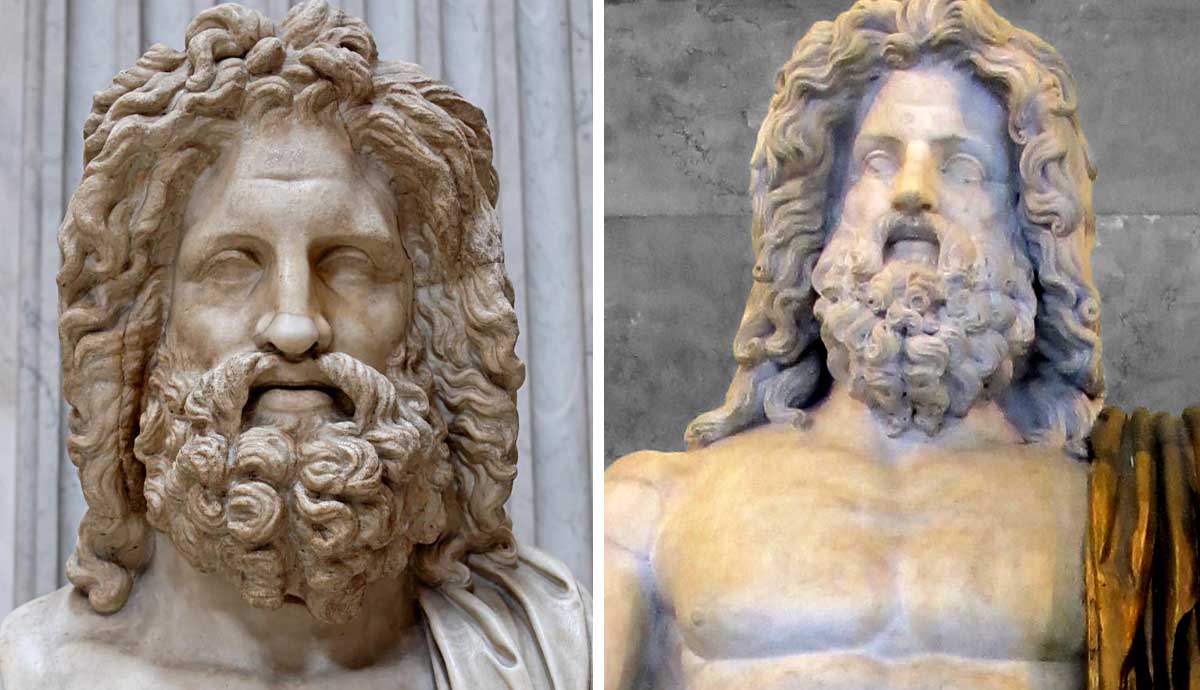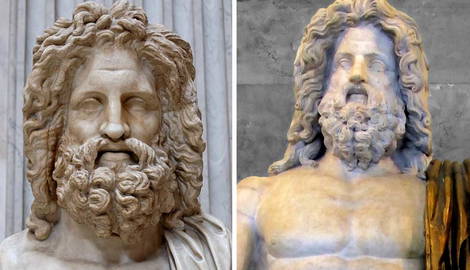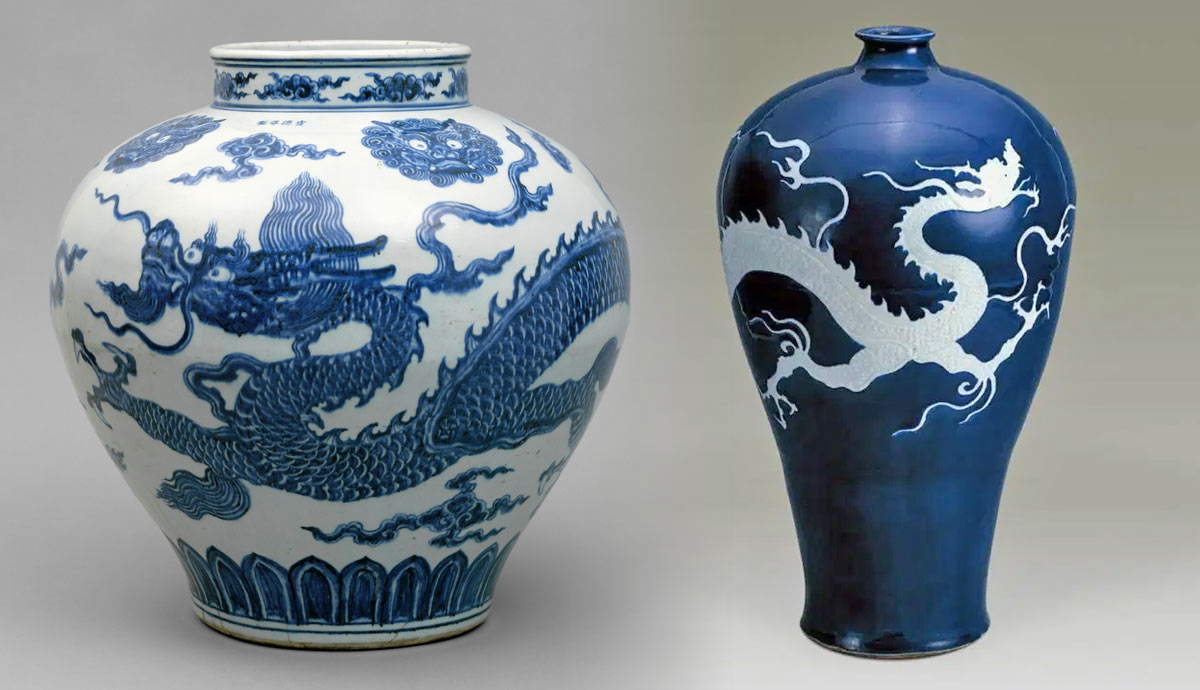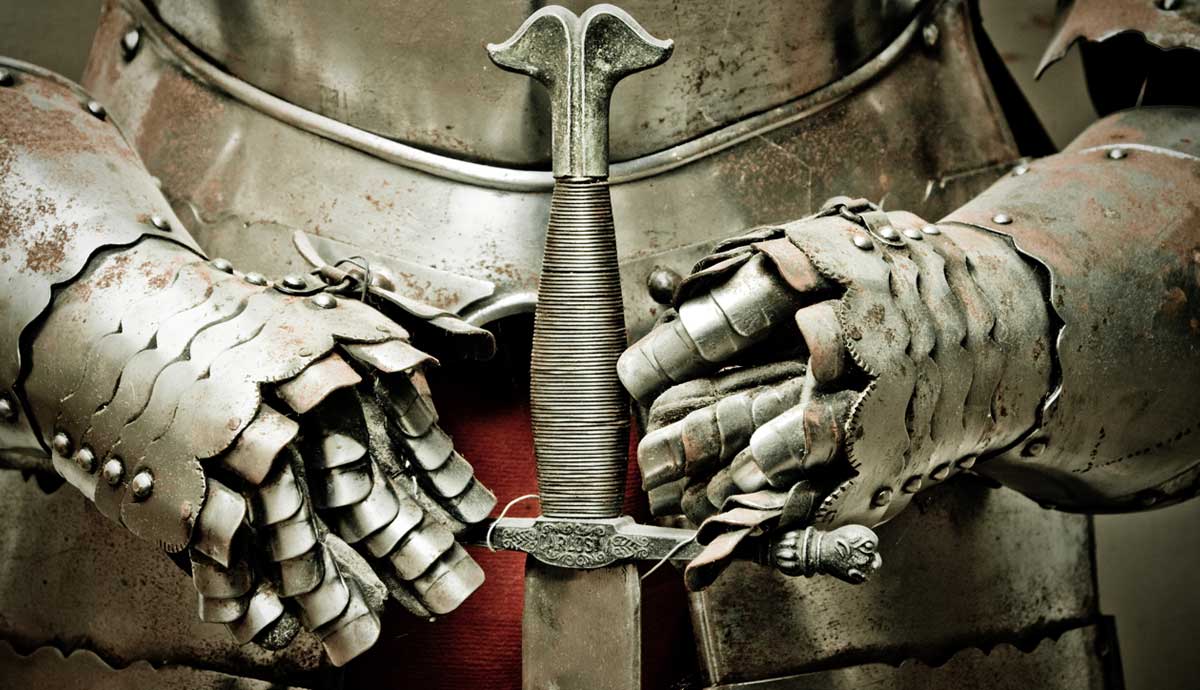
In ancient Greek mythology, Zeus was the almighty god of the sky and thunder, and king of all the gods, who resided on Mount Olympus. Meanwhile, Jupiter was essentially his Roman equivalent, who came later. While the two gods shared many similarities – both were all-powerful, alpha male gods who resided in the sky – they were also part of very different mythological histories. This means each has their own distinctive, unique family history, relationships, character traits, and special skills. We examine some of the fundamental differences (aside from their names) that distinctly set them apart from one another.
1. Zeus Was Over 1,000 Years Older

Zeus was described in detail by the ancient Greek writer Homer, while Jupiter was recorded by the Roman writer Virgil, more than 1,000 years later. Homer introduced us to Zeus in the Iliad and the Odyssey as the “father to all gods,” and the son of Cronus and Rhea, who took up residence on Mount Olympus with the twelve other Olympians. Meanwhile, in the Aeneid, Virgil introduces us to Jupiter, the son of Saturn and Ops, who was, by all accounts, “the best and greatest” god of all, who ruled with strength and nobility from the heavens.
2. They Looked Slightly Different

In Greek mythology Zeus was a strong, handsome man, usually with a long beard. His symbols were a lightning bolt and an eagle. By contrast, Jupiter’s appearance in Roman mythology is much vaguer. He is, however, described in the Aeneid as “a wise, prophetic father.” Jupiter shared similar associations with lightning and eagles, and he is also sometimes linked with oak trees, which were a symbol of his great wisdom.
3. Zeus and Jupiter Had Different Wives

While Zeus had at least six different wives throughout his long life, Jupiter only married once, to his sister Juno. But both Zeus and Jupiter were known for their philandering ways, and they went on to father multiple children with different women. However, of the two, Zeus was the far more promiscuous and unreliable, going to great lengths to pursue whoever might be the current object of his affection. And while Zeus went on to have around 100 different children as a result of his endless stream of affairs, Jupiter fathered a much more modest number of 14 children. This meant that while Greeks saw Zeus as a lusty, all-powerful alpha male who was narcissistic and self-absorbed, Roman associated Jupiter with a greater dedication to the state, family, and protection.
4. Jupiter Could Determine Fate

While Zeus had a great many powers that he used for dramatic effect, he lacked the ability to determine the course of history or fate. Jupiter, meanwhile, was able to shape the course of all events on earth, determining the destiny of humanity. This special skill meant Jupiter could call forth miracles to happen on earth. Romans believed in his determinative skills so strongly that they would sacrifice rams in his honor, in the hope of earning his favor.
5. Zeus Was More Involved with Humans

In ancient Greek mythology, Zeus was often involving himself in the affairs of his people, while stirring up all sorts of trouble. This gave him a somewhat fallible quality, particularly as he kept falling in love with all the wrong women, and going to great lengths to try and cover his tracks. By contrast, Jupiter remained far more detached from human life, making him very much a revered figure of authority. This shift reflected the shift from the liberal Greeks to the (comparatively) restrained Romans, who placed an emphasis on the structure of family in holding society together.










